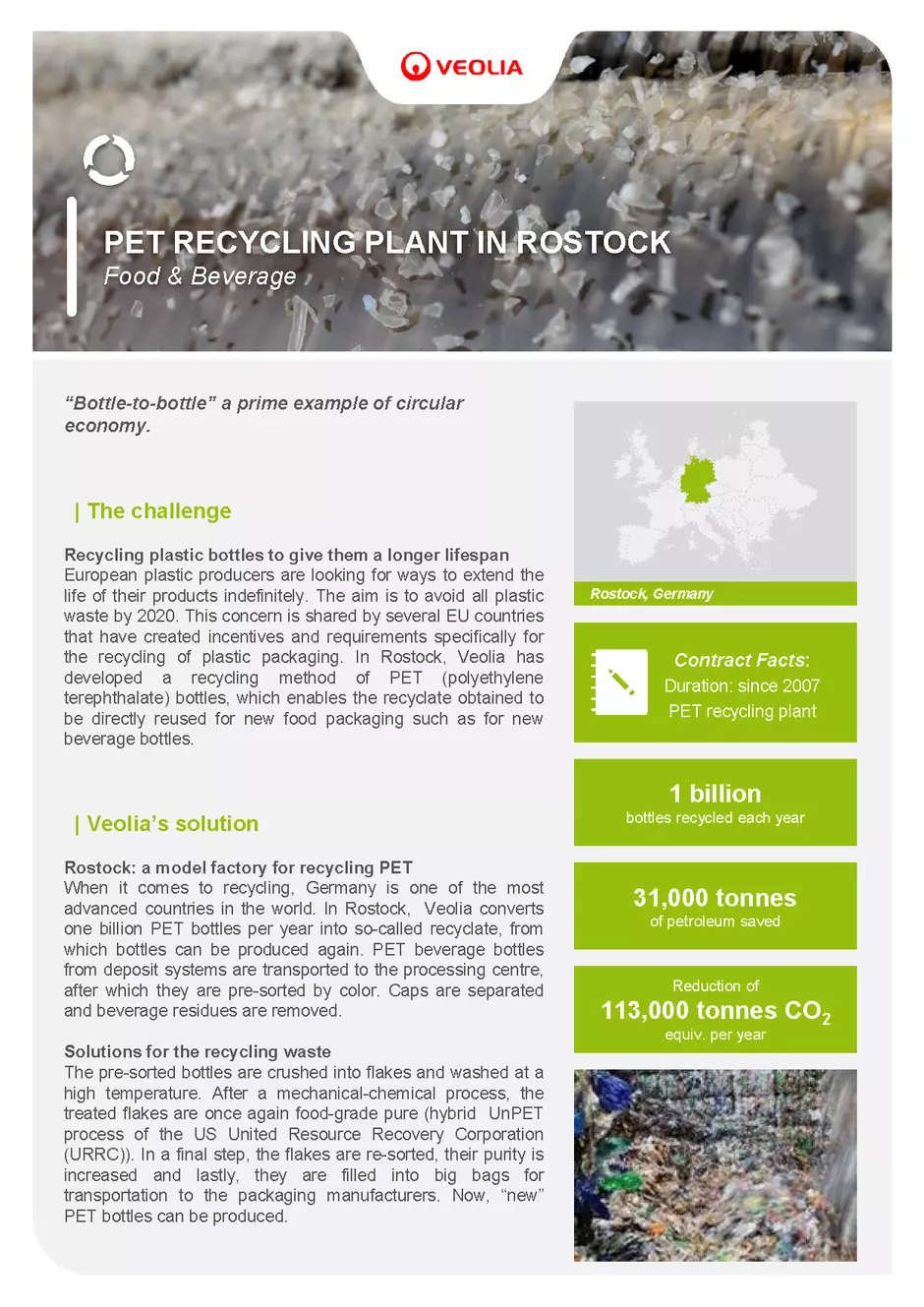"Bottle-to-bottle" a prime example of circular economy.
The challenge
Recycling plastic bottles to give them a longer lifespan European plastic producers are looking for ways to extend the life of their products indefinitely. The aim is to avoid all plastic waste by 2020. This concern is shared by several EU countries that have created incentives and requirements specifically for the recycling of plastic packaging. In Rostock, Veolia has developed a recycling method of PET (polyethylene terephthalate) bottles, which enables the recyclate obtained to be directly reused for new food packaging such as for new beverage bottles.
Veolia’s solution
Rostock: a model factory for recycling PET
When it comes to recycling, Germany is one of the most advanced countries in the world. In Rostock, Veolia converts one billion PET bottles per year into so-called recyclate, from which bottles can be produced again. PET beverage bottles from deposit systems are transported to the processing centre, after which they are pre-sorted by color. Caps are separated and beverage residues are removed.
Solutions for the recycling waste
The pre-sorted bottles are crushed into flakes and washed at a high temperature. After a mechanical-chemical process, the treated flakes are once again food-grade pure (hybrid UnPET process of the US United Resource Recovery Corporation (URRC)). In a final step, the flakes are re-sorted, their purity is increased and lastly, they are filled into big bags for transportation to the packaging manufacturers. Now, “new” PET bottles can be produced.
The benefits
The advantages are striking: this process saves more than 31,000 tonnes of oil and thousands of cubic metres of water per year. At the same time, the costs for the supply of raw materials and their transport are reduced.
The US Food and Drug Administration (FDA), the Federal Office of Public Health in Switzerland, the German Fraunhofer Society, the European Food Safety Authority and other organisations have confirmed that these recycled products comply with the relevant regulations governing food contact materials in the EU and the US.
Key points:
- Guaranteed process
- Health safety
- Improved waste recycling
- Lower processing costs
- Significant reduction of CO2 footprint.
(The use of recycled PET enables a reduction in CO2 emissions of over 70% compared to virgin PET).
The technology introduced by Veolia makes PET recycling and, thus, the possible cycle more sustainable. The economic benefits now (unfortunately) depend to a large extent on the raw materials or the collection system.
Stephan BOCKMÜHL, Managing Director of the PET Recycling plant in Rostock
SOCIAL
- Creation of local jobs, contribution to recycling awareness.
ENVIRONMENTAL
- Reduction of CO2 emissions: One tonne of recycled PET bottles equals 1.5 tonnes of CO2 emissions prevented.
- Savings in raw materials and energy
- Waste recycling
HUMAN RESOURCES
- 55 employees at Veolia’s PET plant in Rostock,
- Further development of skills as well as state-of-the-art technology.



